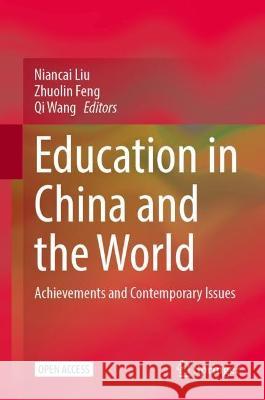Education in China and the World: Achievements and Contemporary Issues » książka
topmenu
Education in China and the World: Achievements and Contemporary Issues
ISBN-13: 9789819958603 / Angielski
Education in China and the World: Achievements and Contemporary Issues
ISBN-13: 9789819958603 / Angielski
cena 201,72
(netto: 192,11 VAT: 5%)
Najniższa cena z 30 dni: 192,74
(netto: 192,11 VAT: 5%)
Najniższa cena z 30 dni: 192,74
Termin realizacji zamówienia:
ok. 16-18 dni roboczych.
ok. 16-18 dni roboczych.
Darmowa dostawa!
Kategorie:
Kategorie BISAC:
Wydawca:
Springer
Język:
Angielski
ISBN-13:
9789819958603











